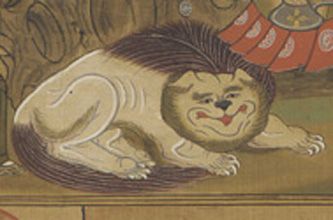I've seen it done. It's like nails on a chalkboard. Seriously, any -ism feels jarring in pre-19th century settings.
Sigh. I suppose any reference to BDSM in ancient Egypt is right out of the question then?

As to the Potato Rage book I'm reading right now, I'll go the RYFW way and send you the title via PM. Here I'll only say that it's set in the middle of the 19th century, in pre-modern Japan, and is filled to the brim with (entirely modern) Western mannerisms and body language. Kissing on the cheek, hugging, patting on the back, the works.
I don't know nuffink about Japan, modern or otherwise (well, except what I learned from watching the karate kid movies - thank you for the education, Mr Miyagi) but I'd assume that someone writing a book about it would, yanno... do some research on Japanese culture or something. Possibly.

That would grate on me a little. Possibly because in Outlander, the 18th-century villain was utterly baffled when the 20th-century time-travelling heroine called him a sadist (and he was a pretty textbook example).
Oh, I love the show (couldn't get through more than a page of the first book though) so I know who this probably refers to. Hehe, nice touch.
So, I need to find a way of calling my ancient Egyptian baddie a sadist without using the word sadist. So far I've talked around it, but it's getting annoying not being able to just label it




